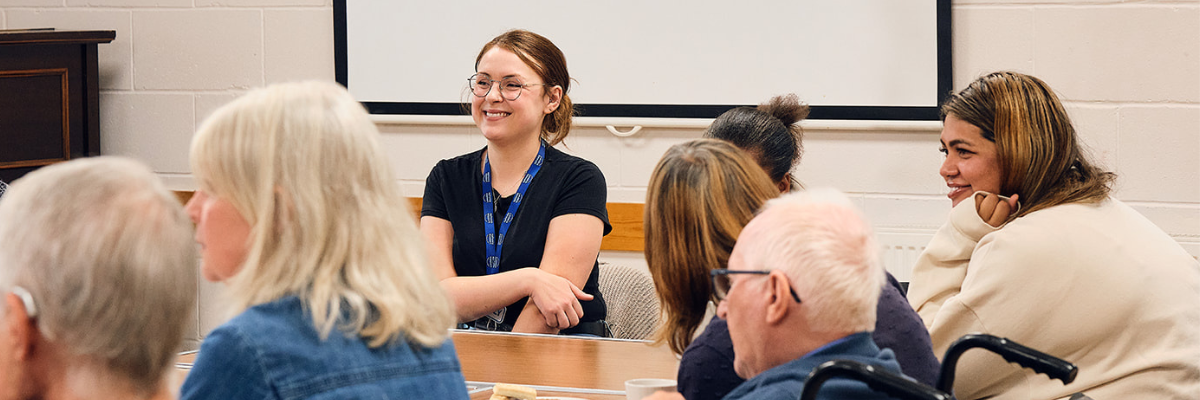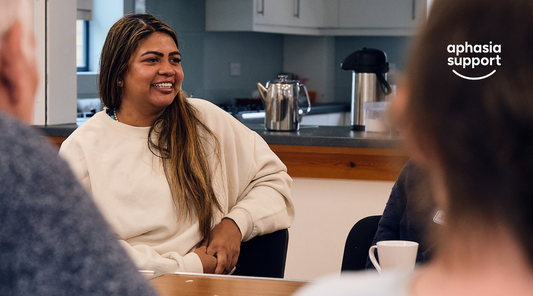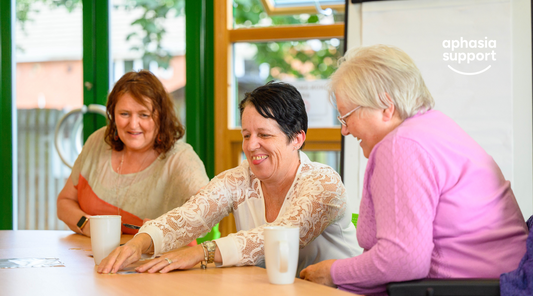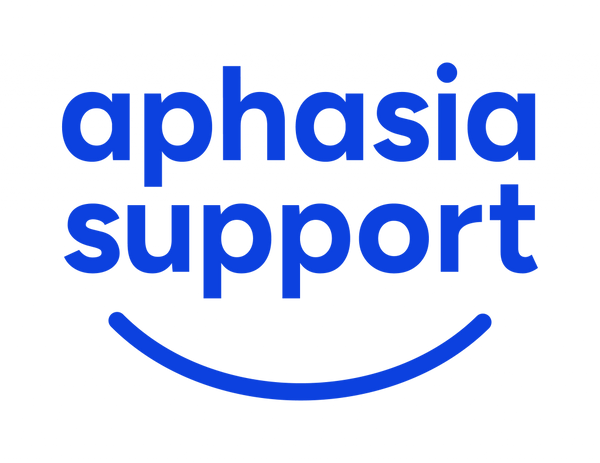
Make a life-changing difference
Volunteers are the beating heart of Aphasia Support, transforming the lives of the people, families, and communities we support. By joining our team, you can help local people communicate with confidence, reconnect with their loved ones and live life to the fullest.
No experience is necessary, and full training is provided. We simply rely on your kindness, commitment and passion to make a real difference in people’s lives.
We recruit volunteers based on our quarterly client intake. Volunteer applications are now closed and will re-open in January 2026. Thank you for your support.
Volunteer Roles
-

Aphasia Cafe Volunteer
As an Aphasia Café Volunteer, you’ll play a key part in creating a warm and welcoming space for people with aphasia and their loved ones.
Aphasia Cafe Volunteer
As an Aphasia Café Volunteer, you’ll play a key part in creating a warm and welcoming space for people with aphasia and their loved ones.
Read More -

Speech Support Volunteer
As a Speech Support Volunteer, you’ll help to provide personalised 1:1 speech and language therapy in the comfort of someone's home.
Speech Support Volunteer
As a Speech Support Volunteer, you’ll help to provide personalised 1:1 speech and language therapy in the comfort of someone's home.
Read More -

Finance Trustee
As a Finance Trustee, you'll use your expertise to help shape the future of our charity.
Finance Trustee
As a Finance Trustee, you'll use your expertise to help shape the future of our charity.
Read More
FAQ's
Curious about volunteering with Aphasia Support? Here you’ll find answers to common questions about the role.
Collapsible content
Do I need a particular skillset or qualification?
No prior experience is required. We simply ask that you are IT literate and, most importantly, demonstrate a friendly, patient, positive, and compassionate approach. Full training will be provided, and you will have access to ongoing support and guidance throughout.
I’m currently studying. Would this be a good opportunity for me?
Yes. Our volunteer roles are well-suited to undergraduate or postgraduate speech and language therapy students, as well as anyone undertaking a related qualification and considering a career in this field. The role can be fitted around your studies, offering flexible opportunities to gain practical experience supporting people with aphasia and their carers. You will also develop valuable transferable skills such as communication, organisation, time management, and adaptability.
What do I need to know about aphasia?
Aphasia is a complex speech and language disorder caused by damage to the language centres of the brain. It affects a person’s ability to communicate with their loved ones and the world around them.
The condition is most commonly the result of a stroke, with around one third of stroke survivors in the UK developing some form of aphasia. It is estimated that approximately 350,000 people in the UK are currently living with the condition. The most effective treatment is speech and language therapy, which helps people regain and adapt their communication skills.
Aphasia is a life-changing hidden disability. Many people experience frustration, isolation, loss of confidence, and a reduced sense of independence as they adjust to life with a communication disorder. However, with the right support, understanding, and therapeutic input, people with aphasia can continue to live meaningful, connected, and fulfilling lives.
Do you accept applicants from across the UK?
Not at present. We are currently only able to accept applicants who can provide in-person support.
What support will I receive as a volunteer?
As a Speech Support Volunteer, you will be supported by our Speech and Language Therapy Assistant and have regular contact with a qualified Speech and Language Therapist, including assessment reviews and Q&A sessions.
As an Aphasia Café Volunteer, you will be supported by the Café’s Session Leader and may also receive mentorship from an experienced volunteer.
Click here to meet our team!
Any questions? Get in touch – click the button below to email us or call our team on 0300 102 3500.
Hear from our volunteers
Get to know our volunteers and hear first-hand what it’s like to support people with aphasia. Discover their experiences, the difference they’ve made, and why they love being part of our team.
-

Meet Marion: Giving back after retirement
Meet Marion, a retired primary school teacher whose desire to stay connected and make a difference led her to volunteer with Aphasia Support.
Meet Marion: Giving back after retirement
Meet Marion, a retired primary school teacher whose desire to stay connected and make a difference led her to volunteer with Aphasia Support.
Read More -

Meet Izzy: How volunteering led to a dream career
Discover how Izzy’s experience volunteering supported her dream of becoming a qualified speech and language therapist.
Meet Izzy: How volunteering led to a dream career
Discover how Izzy’s experience volunteering supported her dream of becoming a qualified speech and language therapist.
Read More
Hear from our clients
Hear directly from the people we support and see the difference your volunteering can make. These stories demonstrate the impact you can have on someone’s daily life - helping people to express themselves, maintain meaningful connections and achieve their goals.
-

Michael & Susan
2016 marked the beginning of a long and challenging journey for Michael his wife, and Susan.
Michael & Susan
2016 marked the beginning of a long and challenging journey for Michael his wife, and Susan.
Read More -

Matt Langridge
Meet Matt Langridge, from Leeds. Matt is 35 years old and was diagnosed with Aphasia in December 2018 following a stroke.
Matt Langridge
Meet Matt Langridge, from Leeds. Matt is 35 years old and was diagnosed with Aphasia in December 2018 following a stroke.
Read More -

Shadim Hussain
Meet Shadim Hussain from Bradford. On a Saturday afternoon in June 2022, Shadim was home with his family when he had a stroke...
Shadim Hussain
Meet Shadim Hussain from Bradford. On a Saturday afternoon in June 2022, Shadim was home with his family when he had a stroke...
Read More









